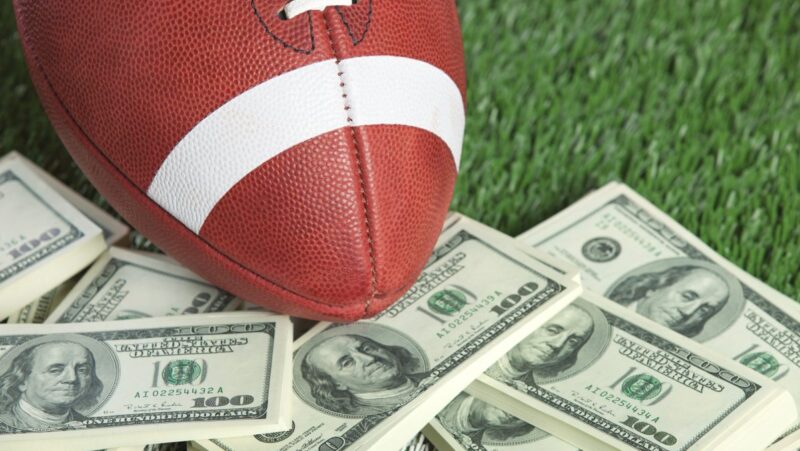By Ryan Bologna Contributor
Updated 9/19/22 4:55pm ET
If you bet on football, you are probably in at least one fantasy league. If you are active in your league, the knowledge you have can be used to your advantage. The problem is when emotions come into play. It’s fine to like the players on your fantasy team, but don’t let that color your judgment when it comes to betting on the games. It can be tough to tell the difference between important information and unjustified optimism. We’re here to help you recognize those differences to help you succeed in your league and with your bets.
Let’s start with the obvious. If you are really active in your fantasy league and keeping up to date with the injury news around the league, that is a great way to give yourself the upper hand in your league and with your bets. Injury reports in fantasy apps are often more detailed than the usual reports and press releases through the media. Knowing that situation can help you decide when to pick up or drop players. The first game after a player returns from injury is where you can get in trouble. While they might be back on the field, they might not be 100% healthy. So while it might be worth inserting them back into your starting lineup for fantasy, don’t go placing any prop bets for that player. You never know when a player will reaggravate their injury or will just be used as a decoy.
In the late rounds of a fantasy draft, usually, people select some players who are not as well known but have a chance to explode on the scene. These are called sleeper picks. It is easy to fall in love with these players. Don’t let the fact that you really like these players influence the teams you bet on. Oftentimes, coaches either have different plans for these players than fans envisioned or just don’t like the player as much as some fans do. While it is fun to try to find those diamonds in the rough in your fantasy draft, it is important to not factor those players into the equation when placing bets. Wait a few weeks and see how those players are used. If they have a significant role, know what type of team that player should succeed against. Don’t blindly bet on the upside without having legitimate reasons to do so.
Lastly, know that positional value is radically different in fantasy football compared to the actual games. Running backs are usually said to be the most important position to grab at the top of a fantasy draft. That’s not the case at all when it comes to the real games. Running backs are often regarded as the least important position when it comes to impacting wins and losses. The New York Giants were rightly criticized for selecting Saquon Barkley second overall in 2018 when they had so many other needs. The position is too dependent on the strength of a team’s offensive line. Unless you are talking about a team like the Titans, who have a system structured around Derrick Henry, running backs do not have as much of an impact as many people think. If you have a running back who has been producing a lot for you in fantasy, don’t misinterpret that as something that has a huge impact on wins and losses for their team. Betting on a team because you think a running back will lead them to a win is not the right approach.
Agreed. And Barkley could turn out to be a really good NFL running back.
— Doug Moore (@DMooreNFL) August 11, 2018
But when you factor in positional value, I think an above-average QB is worth more than a top-flight RB. https://t.co/Pkm6ElF4q1
The information that is available to you through fantasy leagues can be a great resource, but you need to know how to sift through it to find the important stuff. Some of the statistics are good for making your lineup, but might mislead you when making wagers. You now should have a better understanding of how fantasy football can help and hurt your betting habits.
Photo Credit: Dan Thornberg





